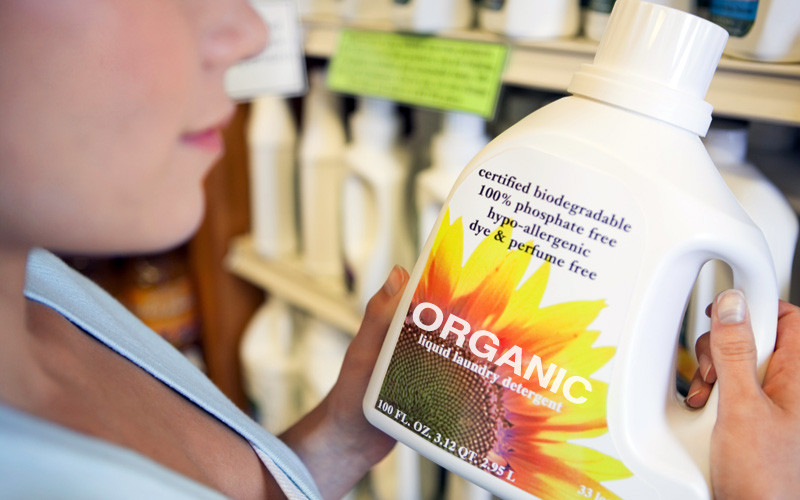
by guest blogger Ava Anderson, natural-beauty expert and safe-cosmetics advocate
The new school year has begun, a time that still signals beginnings even if you graduated years ago. Want to lower your body’s chemical burden as a part of your fall plan? Follow these steps to get an A+ in living naturally throughout the season and beyond…
1. Pull the plug. Get rid of air fresheners, plug-ins, and other scented products in your home, car, and school. According to the National Resources Defense Council, 86 percent of air fresheners tested contain phthalates, chemicals that are “known to interfere with production of the male hormone, testosterone, and have been associated with reproductive abnormalities.” In addition, phthalates are now linked with autism and ADHD by Mt Sinai Children’s Environmental Health Center. These chemicals will not be on the product’s ingredient label, as they can be legally hidden under the term “fragrance,” or “parfum” (along with hundreds of other harmful chemicals). Many scented products contain a slew of toxic chemicals besides phthalates. Instead of using synthetically fragranced products, look for ones that are scented with pure essential oils and/or made with enzymes that break apart malodors rather than masking them with harmful chemicals.
2. Can the triclosan. Triclosan is the active ingredient in many products advertised as “antibacterial.” Triclosan is registered with the government as a pesticide and has been linked to endocrine disruption and, more recently, muscle weakness—including that all-important muscle, the heart. Beware, this antibacterial chemical is also showing up in kitchenware, toys, clothing, toothbrushes, and furniture. Be sure the hand sanitizers and soaps in your child’s classroom at school and deodorants and toothpastes at home do not contain triclosan. Look for soaps and products made with pure essential oils known for their potent antibacterial properties, such as tea tree, neem, lemon, lime, “Italian everlasting” (heliachrysm), peppermint, eucalyptus, rosemary, thyme, and clove.
3. Chuck the chemical cleaners. The Organic Consumer Association states that, “while the chemicals in cleaners foam, bleach, and disinfect to make our dishes and countertops gleaming and germ-free, they many also contribute to indoor air pollution, are poisonous if ingested, and can be harmful if inhaled or touched. Some cleaners are among the most toxic products found in the home. Cleaning ingredients vary in the type of health hazard they pose. Some cause acute, or immediate, hazards such as skin or respiratory irritation, watery eyes, or chemical burns, while others are associated with chronic, or long-term, effects such as cancer.” Is this what we want in our classrooms? Again, check out cleaning products with enzymes and essential oils as a safe, effective alternative.
4. Ditch the detergent! Children are rolling on, soaking in, and inhaling harmful chemicals in their clothes, pajamas, and sheets. The culprit? Laundry detergent. According to Natural News, “The commercials would have us thinking we’re wrapping ourselves in clean mountain air or the fresh scent of wildflowers, but in reality we are wrapping ourselves in a toxic blanket of chemicals.” In addition to synthetic fragrances, conventional detergents are chock-full of toxic chemicals like phenols and surfactants. Stick to natural cleaning methods instead.
5. Dump the DEET! Early fall finds children exposed daily to mosquitoes, especially after class on the sports fields. It’s important to keep the bugs at bay—just be sure to avoid harmful DEET in your choice of bug spray. DEET is a powerful mosquito repellent, but has been known to cause asthma attacks, seizures, and even death. And now, a study in BMC Biology suggests that DEET could also interfere with your nervous system. Keep it away from your kids (and yourself) and go the natural route instead. Did you know that lemon eucalyptus oil is registered with the Environmental Protection Agency as an effective bug repellent, and catnip is shown in a university study to repel mosquitoes 10 times more effectively than DEET? Keep your sprays chemical free!
6. Repel the rays! UVA rays are present all year long! End of summer does not mean time to put away the sunscreen. Avoid “active” sunscreen chemicals that contain hormone damagers and free-radical creators like oxybenzone and octinoxate; retinyl palmitate (shown in studies to enhance skin cancer lesions in the presence of sunlight by more than 20 percent); nanoparticles (pulverized zinc and titanium dioxide that become nano-size particles that can cross the cell barrier and drive into organs); and other harmful chemicals. Use a non-nanoparticle sunscreen that doesn’t rely on harmful chemicals. Check out this amazing video on the importance of sunscreen, and then choose a mineral-based sunscreen with no harmful chemicals and lots of organic botanical ingredients.
Bottom line: Labels don’t tell the whole story, and ingredient lists don’t list everything. Find manufacturers you can truly trust, and pull the plug on harmful synthetic fragrances and chemicals for a safer school and home. The health costs to families and our nation could be greatly lowered if all were to heed this advice.
Get an A+ from the teacher: Please, kindly return your products to the store with a copy of Ava’s Ingredients to Avoid list, and eventually the manufacturers will get the message that Americans aren’t buying it any more. Ava Anderson Non Toxic has the safest organic and natural solutions to all six of these issues.
 At the age of 15, Ava Anderson launched her line of personal care and home-cleaning products, Ava Anderson Non Toxic. Now 20, Ava is educating hundreds of thousands of American families annually on the issue of toxic chemicals in personal care products through her line, which now includes baby, skin, hair, body, cosmetics, men’s, bug, home, sun, and pet products. As an undergrad at Babson College in Wellesley, Massachusetts, Ava actively helps run her large company with 30+ employees and thousands of Ava Consultants in every state in the nation. Her goal is to force a paradigm shift on the issue of toxic chemicals in products with your help.
At the age of 15, Ava Anderson launched her line of personal care and home-cleaning products, Ava Anderson Non Toxic. Now 20, Ava is educating hundreds of thousands of American families annually on the issue of toxic chemicals in personal care products through her line, which now includes baby, skin, hair, body, cosmetics, men’s, bug, home, sun, and pet products. As an undergrad at Babson College in Wellesley, Massachusetts, Ava actively helps run her large company with 30+ employees and thousands of Ava Consultants in every state in the nation. Her goal is to force a paradigm shift on the issue of toxic chemicals in products with your help.




Once again, thank you for the helpful reminders that we are the only ones who can be aware and careful of what we allow in our homes, into our bodies, and the effect on our health that chemicals have without us being aware! We all need these reminders!
So happy that my family and I follow these guidelines already. Thanks for the info! Everyone deserves this info for their loved ones. Knowledge is power and empowered customers choose health!
Knowledge is power. Thank you Ava for helping us make safe choices for ourselves and our families.
I am grateful for the knowledge that Ava has armed me and my family with. We are enjoying a home with less allergens and therefore less allergy symptoms. Everyone needs to know about this! I love the idea of returning products with Ava’s ingredients to avoid list!
My friend avoids triclosan and I avoid feet. Thanks to this great, simple article. I’ll be forwarding your article along to my friends.
Great article. Thanks, Ava, for all you do!
Thanks for sharing such practical ways to greatly reduce our body burden. We use all of Ava’s non-toxic solutions to these 6 problem areas! We’ve come a long way in our home! Thank you!